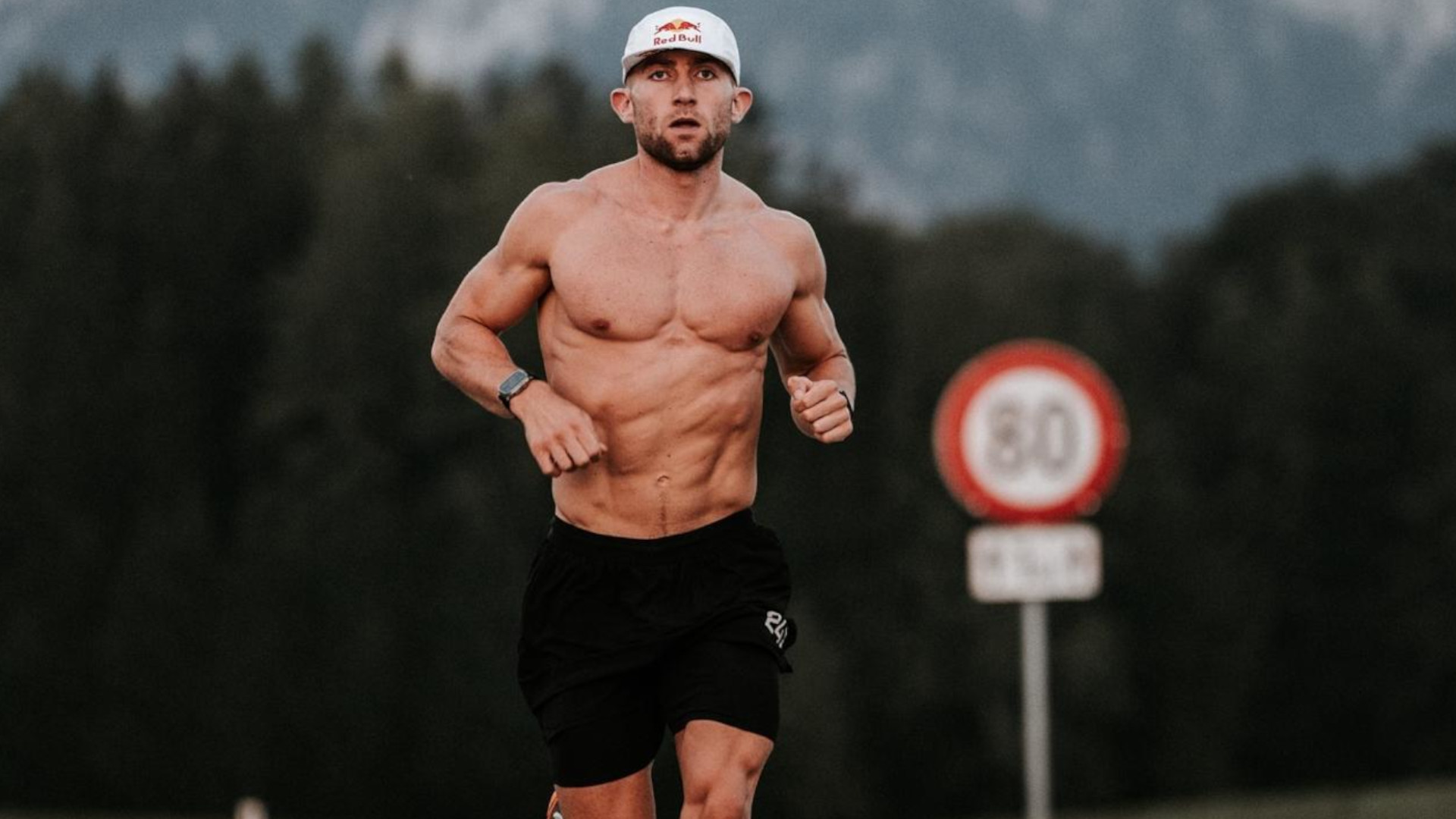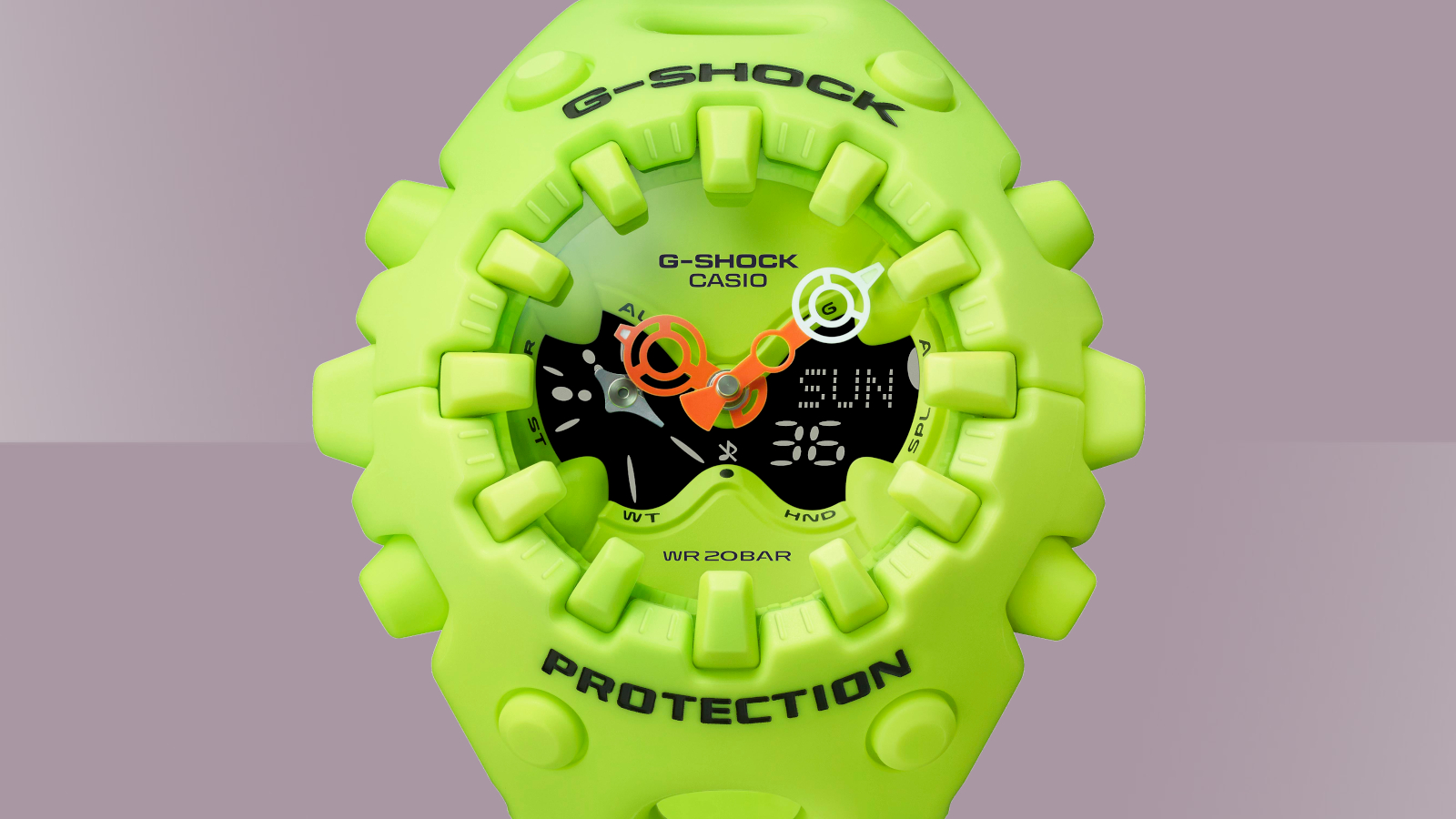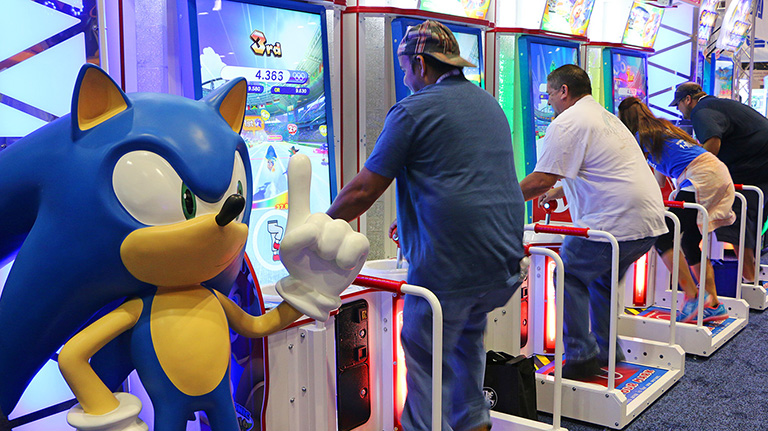
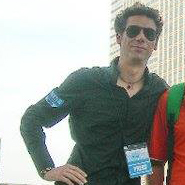
T3's man in Japan Marco Zangirolami has been working on a long-awaited interview with CEO of Sega Amusements International Paul Williams since E3 2016.
As ever, though, good things come to those who wait.
If you missed any of Marco's superb E3 coverage this year then be sure to check out his daily reports now. Simply click the links to get started:
In this T3 exclusive interview Williams talks about how he joined the historical Sega brand that lately has been going though major changes both in Japan and abroad, as well as the gaming and amusement industry in general, providing unique insights into its culture and recent trends.
So, without further a do, let's hand over to Marco and not only one of the most influential figures in industry but also the man behind Daytona Championship USA!
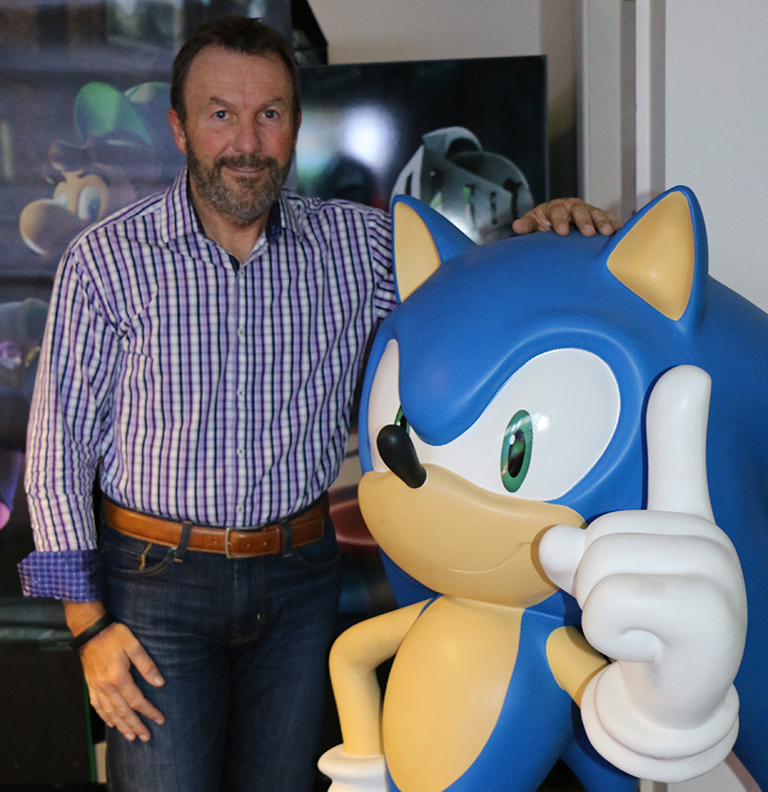
Sign up to the T3 newsletter for smarter living straight to your inbox
Get all the latest news, reviews, deals and buying guides on gorgeous tech, home and active products from the T3 experts
Marco Zangirolami: Where to start? I think first of all I've got to express for gamers around the world our love and respect for the history of Sega, even if - during the last years especially - the house of Sonic & co. has had a low profile. Moving on though to my first question, how did you reach such a high grade position in such an admired Japanese company?
Paul Williams: I have grown up in the amusement/coin op industry. My family had a route business operating coin op machines in the UK. As a young child I remember helping my parents test machines and make minor repairs. I was always fascinated by them. I went to University and studied a degree in Behavioural Sciences, nothing to do with games really, but it has been invaluable for me to watch and study players to find what they like and don't like.
After university I joined several UK leisure companies operating businesses such as Nightclubs, Bars, Bowling Centres , Sports Centres and Casinos. This has really helped me understand the player's mind. In 1997 I was running the most profitable and famous nightclub and cinema in London. The Empire in Leicester Square, the venue is well known for red carpet events and film premiers. A year previously SEGAWORLD had opened about 500 meters away. The original launch management team had all left and SEGA approached me to run this venue for them as I knew the London scene so well. Segaworld was a 110,000sq ft. indoor theme park with 8 interactive rides and 450+ amusements games placed over 7 floors in Piccadilly Circus.
We sold that business in 2001. I then became Sales Director for Sega Amusements Europe Ltd, responsible for selling SEGA amusements product throughout Europe and Middle East.
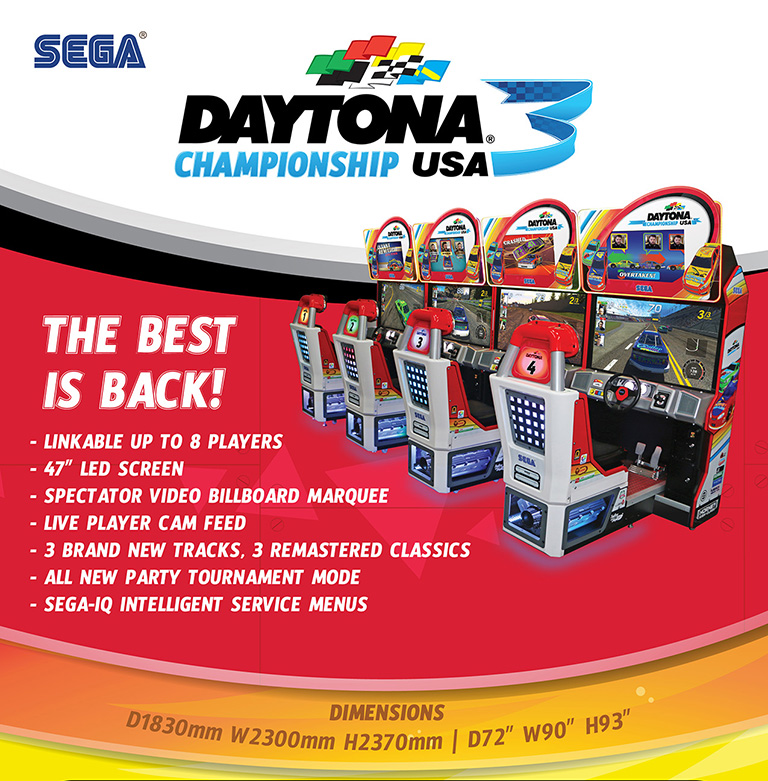
A little while later I became Managing Director of Sega Amusements Europe Ltd. (SAE) At this point I took the decision that we needed to develop games for the European market locally and not solely rely on SEGA Japan. The gap between the Japan market and the western market was starting to become bigger. Japan still had many core players that went to arcades, however in the western market the core players started to play home consoles more. The western arcade market become more popular with casual players. Our first game was Ford Racing followed by Sega Rally 3 and many more. Of course we still had some great games from Japan as well during that time, but the locally developed games certainly started to grow in popularity and sales. Thus making SAE more in control of its own destiny.
In 2008 I was asked to take over the role of COO and President Sega Amusements USA (SAU) whilst still managing SAE. I moved to Chicago in 2008 to better understand the US market and the player. Believe it or not there is a huge difference in playing styles between European players and US players
In 2011 I returned to the UK still managing both the EMEA and USA markets
In 2015 we merged SAE and SAU and renamed the new company Sega Amusements International SAI. This new company would be responsible for the amusements market in all countries outside JAPAN. I was appointed CEO.
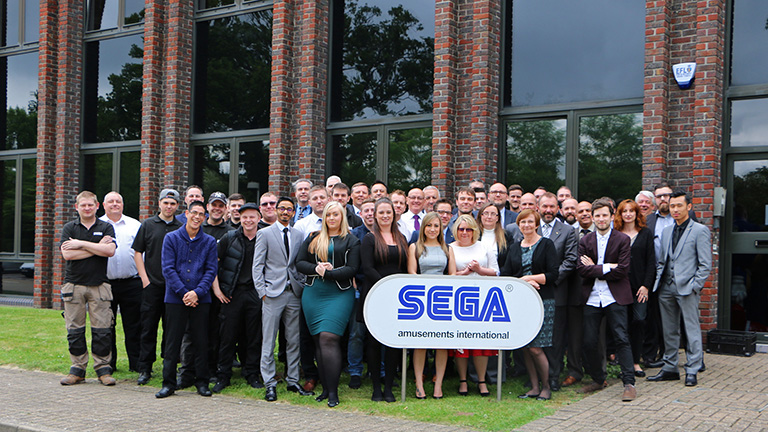
MZ: What has been the greatest challenge you had to faced since your arrival at Sega, and as CEO of Sega USA and Sega Amusement International?
PW: The biggest challenge is always to develop the right product at the right price at the right time. Simple as it may sound, it is the biggest challenge that we always face. Yes SEGA can develop the most technically advanced game, but if it is not priced right for the operator to make a return on investment then it will fail. Our barometer is the cashbox.
MZ: Was it difficult to make career in a Japanese company?
PW: There are challenges working with any large global company such as SEGA. The fact that it is in Japan is not the issue. Large global companies are by nature slow moving in decision making processes. The amusement industry is a fast paced, fast decision making industry. Hence the reason why Sega Amusements International was formed to move quickly, almost like a S.W.A.T taskforce. It is important for any global company to listen to and empower their local management teams. It is very difficult to manage overseas companies from afar. I've been very lucky with SEGA, I've earned their trust over the years that I have been with them and they have listened to my opinions and the directions in which I wanted to take the company. Sometimes it has been challenging for both parties, but for the most part we understand each other and we all have a passion to make great games and excite the player.
Sega Japan have delegated a certain level of authority to me as CEO which has allowed me to lead SAI without too much interference from HQ. Of course they are our superiors and we have to regularly report to them, but so far we have been performing well so there is little cause for them to be concerned. Having said that we are still very close to the R&D teams based in Japan and are in constant dialogue with them about designing games for the western market. Mario and Sonic at the Rio 2016 Olympics and Luigi's Mansion are two game that have recently been developed by the Japan R&D teams which have sold exceptionally well in the western market this year.

MZ: I mean, everybody knows how structured and rigid is the Japanese way of working so how were you able to adapt yourself to such commitment on expectations and budget, especially on a daily basis?
PW: This is the nature of any large business. In today’s global economy there are very few people in senior positions that have the luxury of a Monday to Friday 9-5 job. Besides I love my job, so working at SEGA is a bit like working with your family.
MZ: Talking about the market, now - more than ever - the technology is evolving so fast and in all different directions (example: the 3D in 2009 after Avatar's launch, mobile phones and gaming, 4K since in 2011, last year the 8K from Sharp, now the VR headsets) that even manufacturers report to have problems in adapting their financial plans to develop new content. They fear the technology itself could be out to date in just 1 or 2 years (as the 3D TV market demonstrated that dramatically shrinked soon after it launched).
How do you see the consumer market in 2 or 3 years?
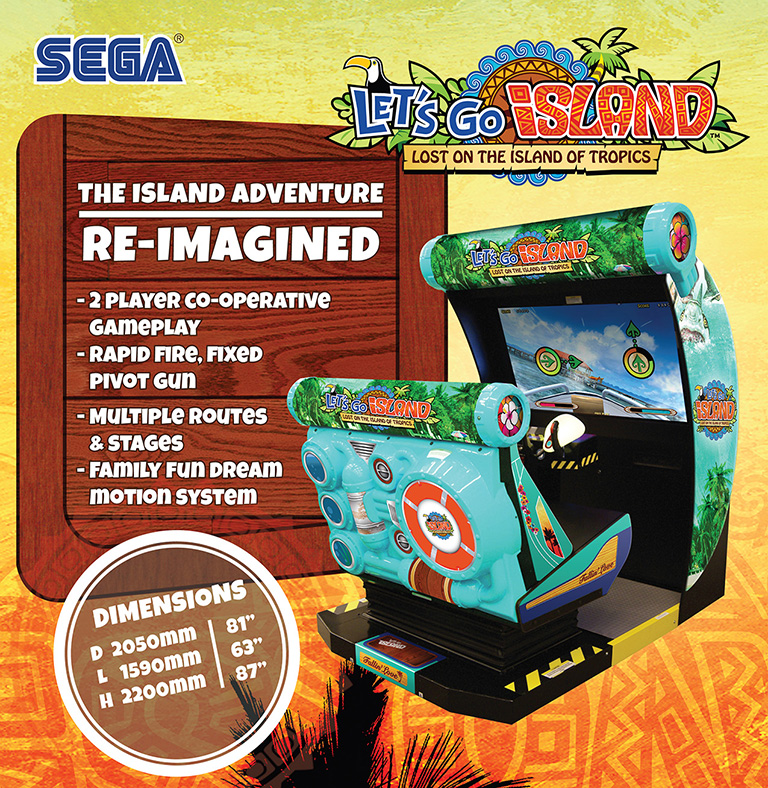
PW: I really do not get involved in the consumer market. The amusement market however is all about giving the player something that they cannot experience at home. We are in the entertainment business. As long as it is human nature for people to interact with each other on a face to face business then the amusement market will prosper. When video tapes were first released everyone thought that would be the death of the cinema business. This is not the case as we all know. The amusement business is the same. In fact at the moment we are seeing an unprecedented growth in Family Entertainment Centres, particularly in North America. Amusement manufacturers are declaring record breaking years for sales
MZ: Having lived in the US to achieve more experience, I have to ask you if you happened to meet in LA or in Orlando the mighty David Rosen, the founder of Sega (now retired)? If so, what did he tell you?
PW: Unfortunately I have not had that pleasure. However I have met Marty Bromley who was also one of the founders of SEGA. Sadly he has now passed away but he was an immensely inspiring and innovative individual.

MZ: Talking about the differences between the American and European market after attending E3 2016, in my personal opinion FPS (First Person Shooters like 'Doom' or 'Call of Duty') still are very strong in US, while in Europe sports and racing games like 'Fifa' and 'F1' still have the biggest share on the market.
What is your opinion about it? Have you found other differences?
PW: The main difference is that European game players in arcades are slightly more core players than USA. In USA they are all very casual players. Typical example is that if you watch any player in USA playing a driving game, you will hardly ever see them using the brake pedal or the gear shift
MS: Yeah, that's true. FECs (Family Entertainment Corners) are growing everywhere in Europe.
But the question for most of the arcade fans (especially in their 40s now, who lived the so called 'golden age' of the Coin Op industry) is that they do not find anymore the latest most amazing games made by Sega (while they are available in Japanese arcade centres). For example Shining Force Cross, Initial D8, Quest of D) are not here in Uk.
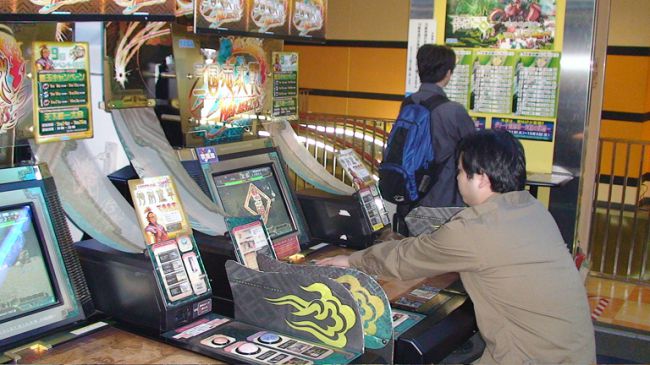
PW: Sega Japan has invested huge amounts of money into its online All Net system. It is the standard in Japan that most arcade operators use. This has been helped by the fact that SEGA has 300+ arcade centres of its own to kick start the investment and roll out. There are no big operators in the western market. Chuck E Cheese has 550 locations but due to the young demographics of their clientele they have no requirement for an online system. This lack of online infrastructure in the west means that some of Sega’s core games cannot be operated outside Japan at the moment. There are a few big players that will soon be looking at on line systems, but it is too soon yet.
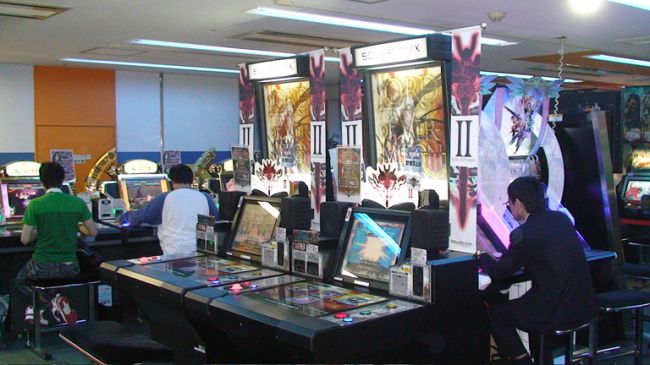
MZ: Anyway, talking about the European market in detail, the introduction of the gambling machines in the last 10 years has proven to have radically affected the local spaces where videogames used to be inside the pubs. Obviously operators preferred machines which gave and give more income than more expensive and low income (compared to gambling) machines.
In Italy (the 2nd largest videogame market in the 80s and 90s) most of the operators now have this idea: until the gambling machines will be available there is no future for videogames, they are out of business. In the UK and the rest of Europe it seems to be the same. What is your opinion about it?
PW: This is true but taxation on gambling machines tends to be high. Operators in Italy are now looking at amusements again for their bar locations so it looks as though the circle is turning. Also there is always a market for amusement games as part of the leisure mix.
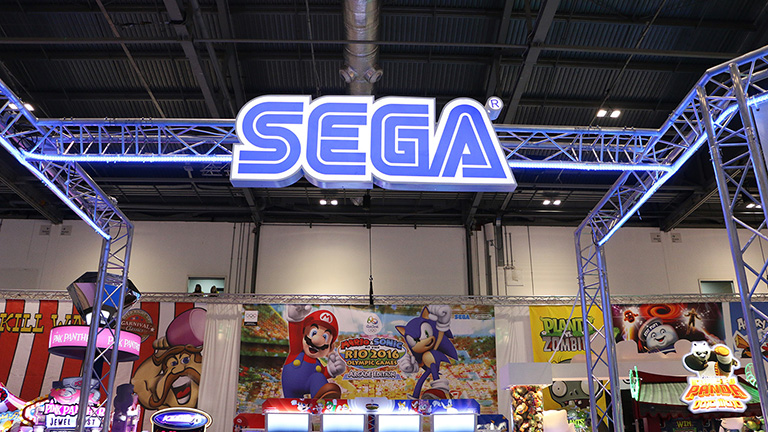
MZ: Talking instead on a B2C level (business to consumer), normal people believe that arcade games are totally dead (i.e. they do not exist anymore because there are no new games), while the truth is totally different. In Japan every year new games come out.
At the latest JAEPO (i.e. the arcade fair widely known as 'Jamma') I counted around 25 new arcade games coming out just this year!
PW: In the western market the FEC/Arcade market is booming. Companies like Dave & Busters, Main Event, Round One, Chuck E Cheese are all expanding at strong pace. You have to consider that the amusement business is not just video games. It is a mix or Video, Redemption, Sports, Cranes and novelty games.
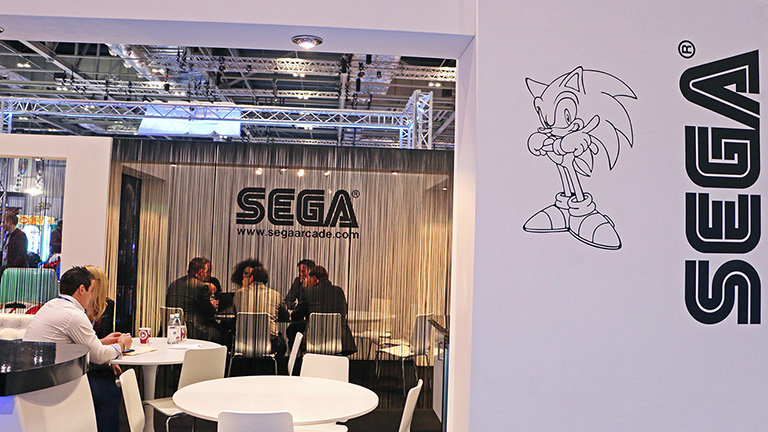
MZ: With the boom do you think in the future will we see an 'OutRun 3' available in London for next summer?
PW: Outrun 3 is not on plan at the moment. It is something that is on our radar but I cannot discuss more than that.
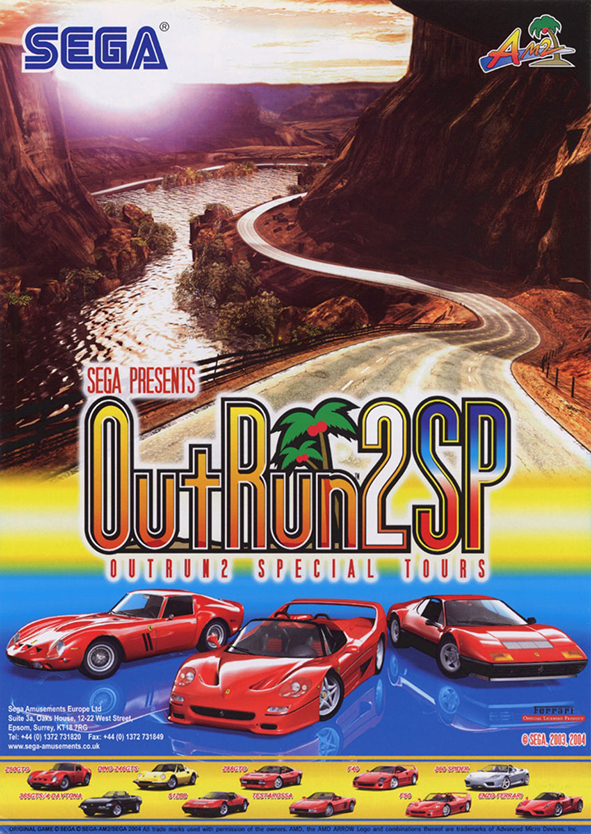
MZ: The hardcore fan base for this game is still very strong, even if the last game is dated now at 10 years old! Soon after Satomi's pardon (the President of Sega Japan) in front of the gamers, is there a new sequel coming soon in the near future?
Also, have you ever worked with Yu Suzuki (the creator of the Sega's Taikan games: Hang on, Space Harrier, Enduro Racer, OutRun, After Burner, Virtua Fighter, Shen mue, etc..) and what has been your personal experience of collaborating with him?
PW: Yes I have worked with Yu Suzuki on Outrun 2, After Burner, Brave Firefighter and Virtua Fighter. He is a creative genius and an innovator that has driven the video game sector forward. He is a real visionary.
Join with us again next Friday for part two of T3's exclusive interview, with new details about Daytona 3, the new Transformers R-360 and much more.
Marco Zangirolami has been reporting on the video game industry since 1996. During his career he has been a correspondent from Japan for the most important Italian firms, head of the 'Made in Japan' section on 'ConsoleMania' (the most important Italian video game magazine of all time) and 'Automat', the leading magazine of the Italian Jamma's Arcade Association. He is a contributor to T3.com, writing about the video game industry. In his spare time Marco likes to collect and restore classic arcade machines from the 1980s and 1990s.
